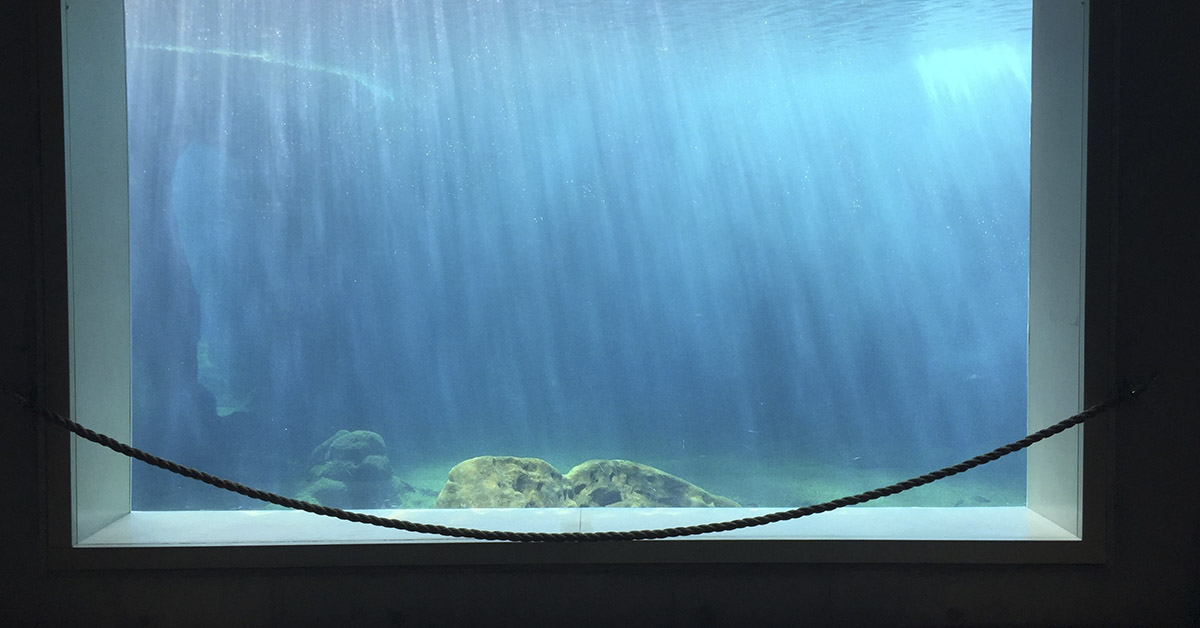Two orcas and 12 dolphins remain confined in Marineland Antibes, an abandoned marine park in southern France. Since its closure in January 2025, the animals have endured worsening conditions. Wikie the orca and her son Keijo swim endlessly in stagnant, algae-filled pools. Despite public outcry and relocation proposals, government inaction has kept them trapped. As pressure grows, activists and marine experts continue to call for urgent rescue. Clearly, this is more than neglect, it’s a test of how far we’re willing to go to fix our past mistakes and give these animals the life they deserve.
Abandoned After the Applause
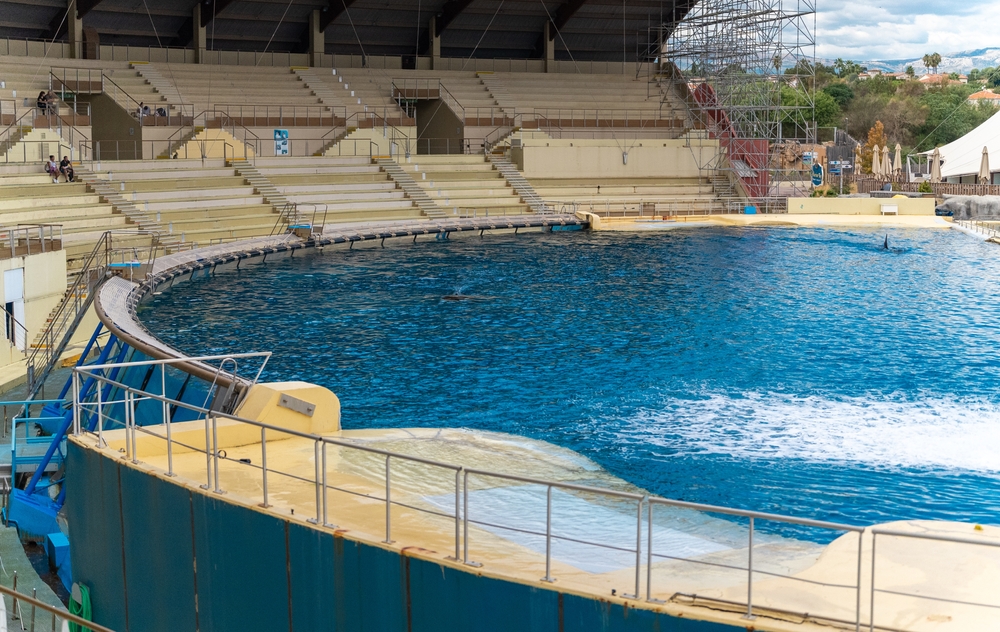
Before closing, Marineland Antibes welcomed thousands of visitors. But when France banned marine mammal performances, the park shut down, and left the animals behind. Today, Wikie, Keijo, and 12 dolphins still live inside the abandoned marine park, cut off from the world. Although a small team continues basic care, drone footage reveals filthy water, crumbling walls, and eerie silence. Once praised for entertainment, the park now symbolizes abandonment. Instead of moving the animals to safety, officials allowed the closure to become a slow sentence. Now, time is running out, and public patience is wearing thin.
A Law Without a Lifeboat
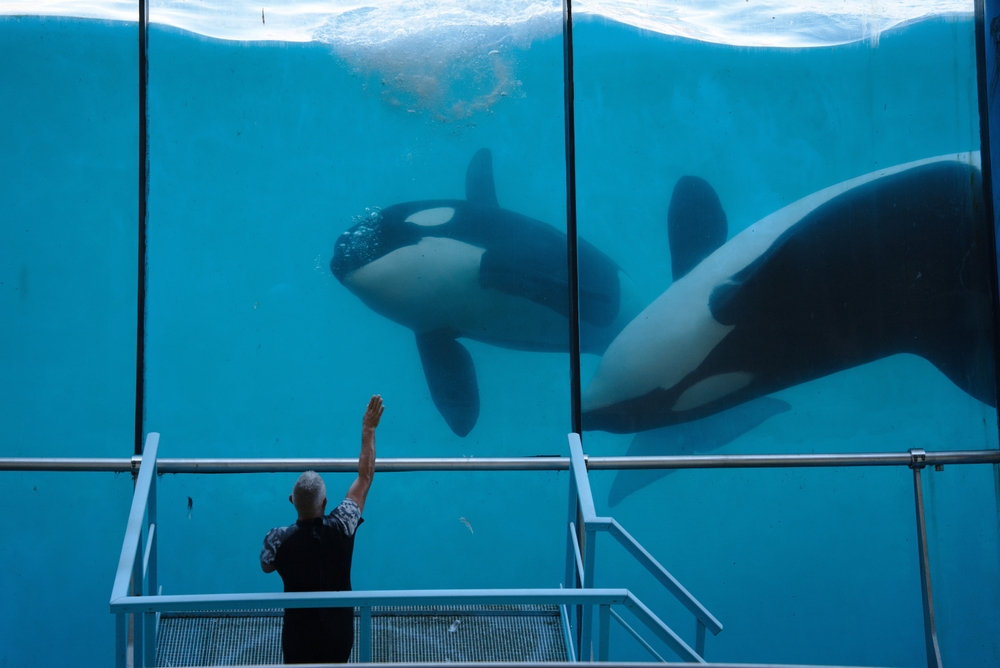
When France passed the marine mammal performance ban, many celebrated the decision. However, the law overlooked one major detail, what happens to the animals left behind? As a result, Marineland Antibes, now an abandoned marine park, still houses the same creatures it once exploited. Wikie, Keijo, and 12 dolphins remain stuck with no relocation plan, no funding, and no timeline. Lawmakers praised their reform, yet failed to follow through. This legal blind spot has created a crisis where animals suffer despite being “protected.” Moving forward, real reform must include responsibility, not just headlines.
Read More: Footage Shows Tragic Death of SeaWorld Trainer After Being Savagely Killed By Whale
Drone Footage Sparks Outrage
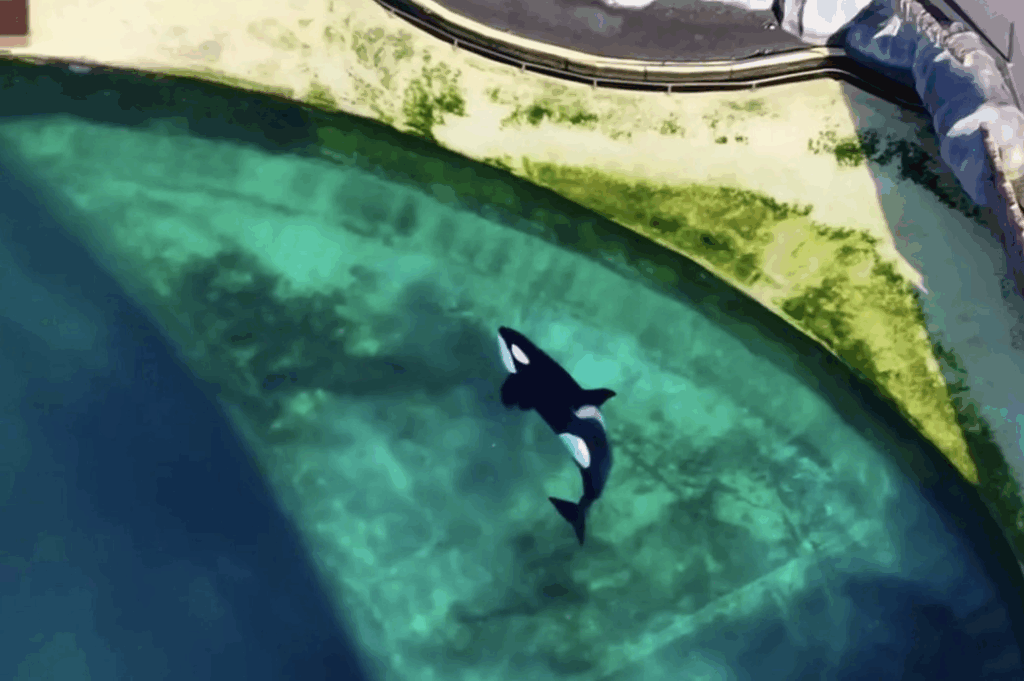
Recently, drone footage taken by TideBreakers offered a disturbing look inside Marineland Antibes, the abandoned marine park still holding orcas and dolphins. In the video, Wikie and Keijo swim through thick, green algae with no visible stimulation or enrichment. Their environment shows clear signs of neglect. Although Marineland staff claim to provide care, the images reveal a different truth. As the footage spread, outrage grew. Protesters filled the streets, and animal rights groups renewed demands for rescue. Ultimately, the video reminded the public, and the government, that promises mean nothing without action.
Failed Rescue Plans in Spain
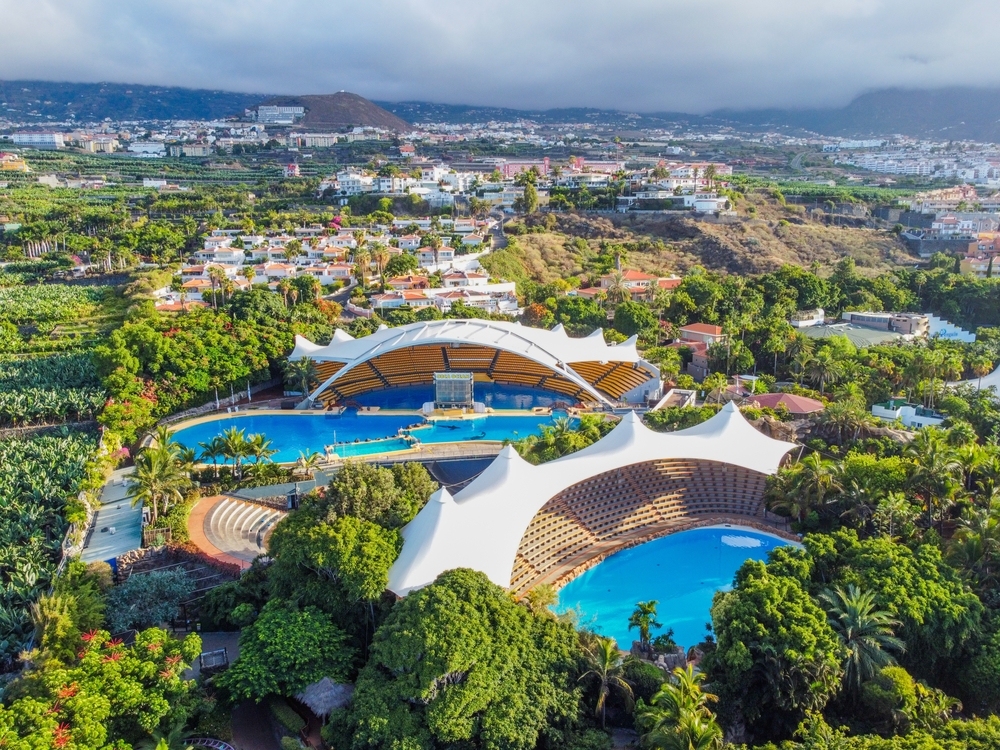
At first, Spain seemed ready to help. Authorities considered transferring the orcas to Loro Parque in Tenerife. However, the plan quickly fell apart. Spanish officials denied the request, arguing that the park couldn’t meet the animals’ needs. Animal welfare groups agreed, warning that another entertainment facility wasn’t the answer. As a result, the orcas remained at Marineland Antibes, the same abandoned marine park where they were left behind. This failed effort highlighted the complex logistics, and politics, involved in marine animal relocation. Without suitable alternatives, the animals remain caught in red tape and exposed to worsening conditions.
Japan’s Offer Rejected
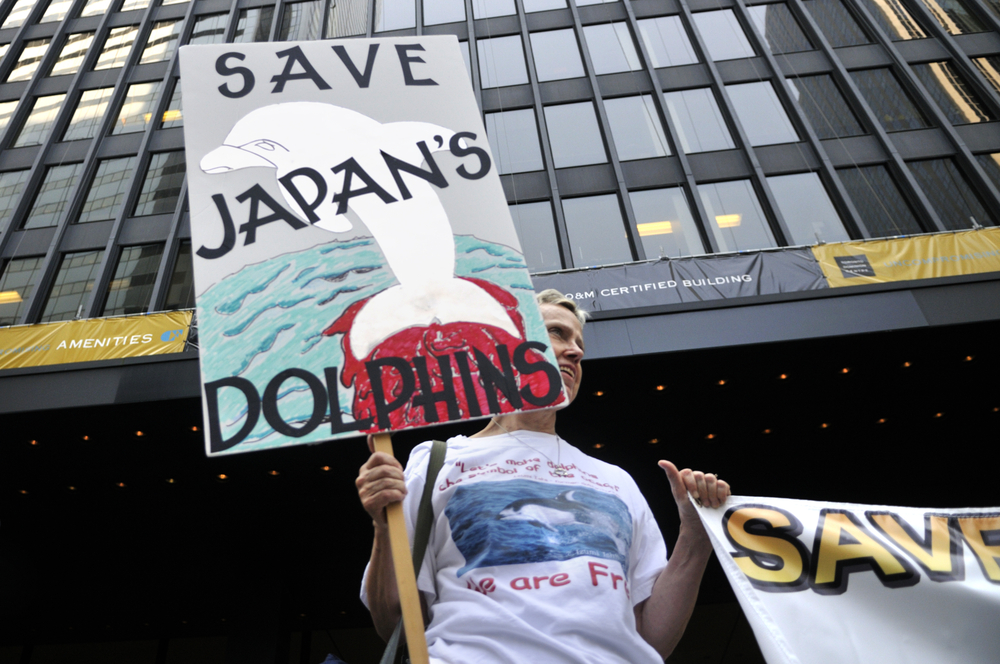
Next, Japan offered to take in Wikie and Keijo. On the surface, the move sounded promising. However, critics quickly raised alarms. They pointed to Japan’s track record with dolphin hunting and weaker animal welfare standards. In response, France blocked the transfer. This decision kept the orcas at Marineland Antibes, prolonging their stay in the abandoned marine park. Meanwhile, experts insisted that sending the orcas to a country known for controversial marine practices would betray efforts toward ethical reform. The rejection underscored growing international tension around animal welfare, and left the whales, once again, without a safe destination.
Read More: Audience Horrified as Dolphin Leaps to Its Death in Disturbing Show at Resort
A Ray of Hope in Canada
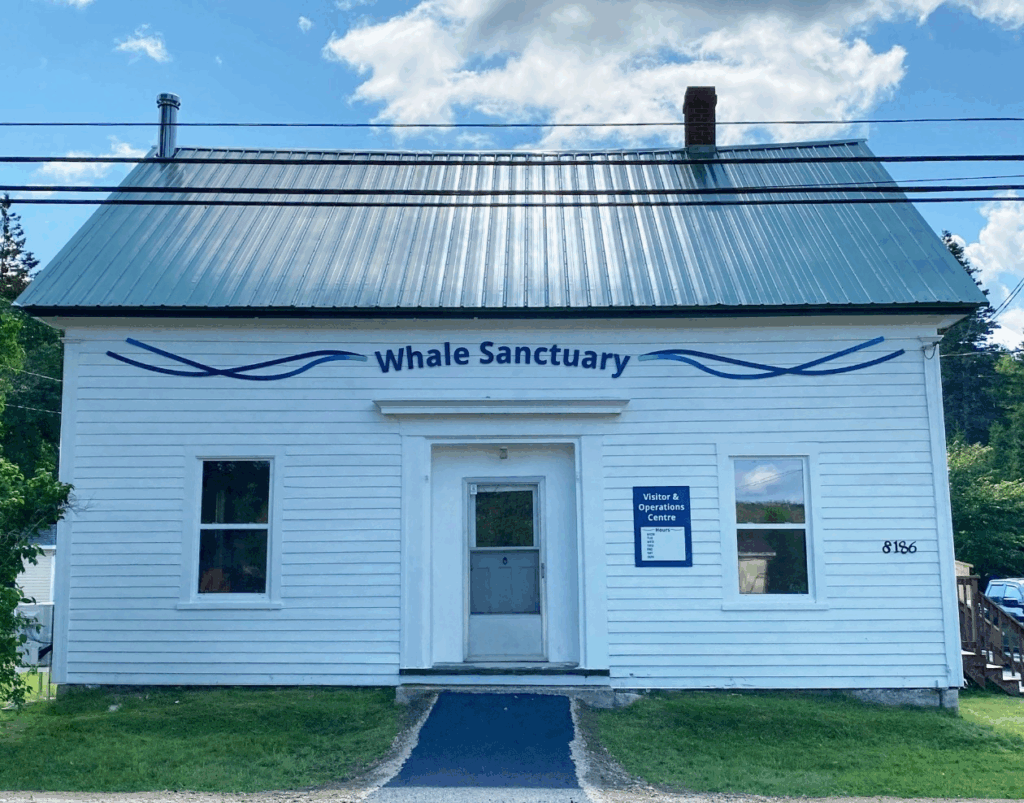
While some plans fell through, hope arrived from across the Atlantic. The Whale Sanctuary Project in Nova Scotia, Canada, proposed a solution: a sea-pen refuge where orcas could live freely without performing. The idea gained wide support from scientists and animal rights groups. However, money and logistics still stand in the way. Relocating orcas is no small task, it requires complex permits, massive transport equipment, and long-term funding. Yet despite these hurdles, many believe this sanctuary could finally release Wikie and Keijo from the abandoned marine park. For once, Marineland Antibes might have a real exit strategy.
Protesters Demand a Sanctuary
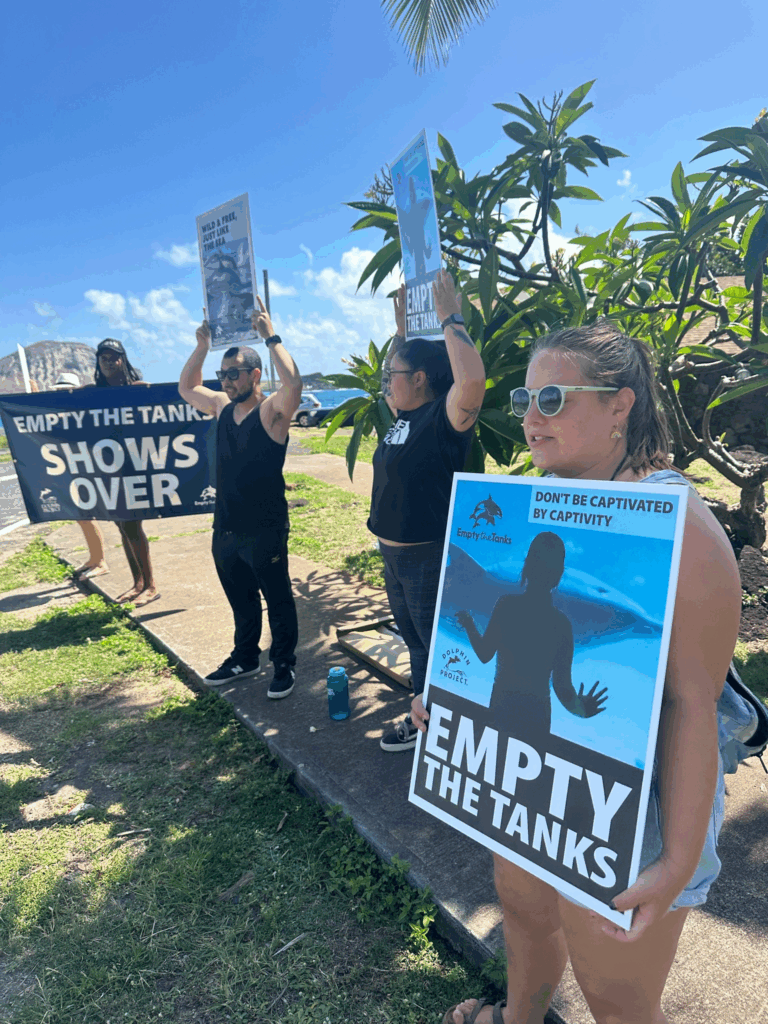
As delays continued, protesters took to the streets. Their message was clear: sanctuary, not another show. Groups like Sea Shepherd and One Voice rallied outside Marineland Antibes, demanding the animals be moved from the abandoned marine park to a natural refuge. They argued that Wikie and Keijo, both born in captivity, cannot return to the wild, but they still deserve peace and space. For activists, a life without tricks, loudspeakers, or concrete walls would be a long-overdue form of justice. Their campaign is growing louder by the day, and now, the government can’t ignore them much longer.
The Forgotten Dolphins
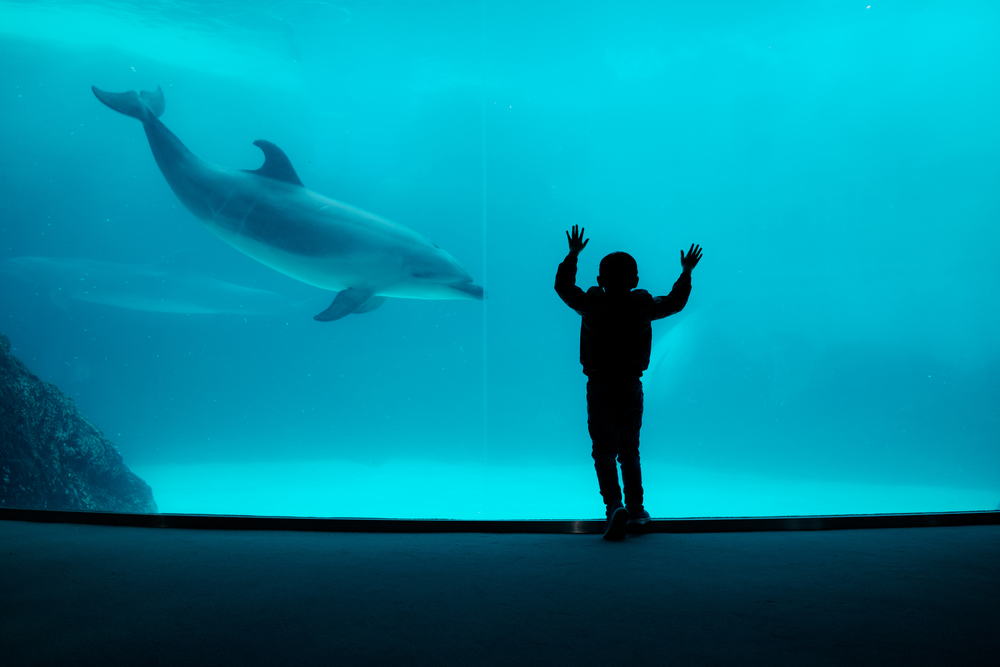
While Wikie and Keijo grab headlines, 12 dolphins quietly suffer nearby. These social, intelligent animals also remain trapped in Marineland Antibes, the same abandoned marine park that’s drawn global outrage. Unlike orcas, dolphins don’t inspire the same media frenzy, yet their conditions are just as dire. Stagnant water, stress, and isolation wear on their health every day. Despite this, relocation efforts have focused mostly on the orcas. Activists insist the dolphins deserve equal attention, arguing that ignoring them adds another layer of neglect. As the spotlight grows, so does the call to rescue all the animals, not just the most famous.
Read More: How a Whale Tried to Bridge the Linguistic Divide Between Humans and Animals
Marineland’s Silence Raises Questions
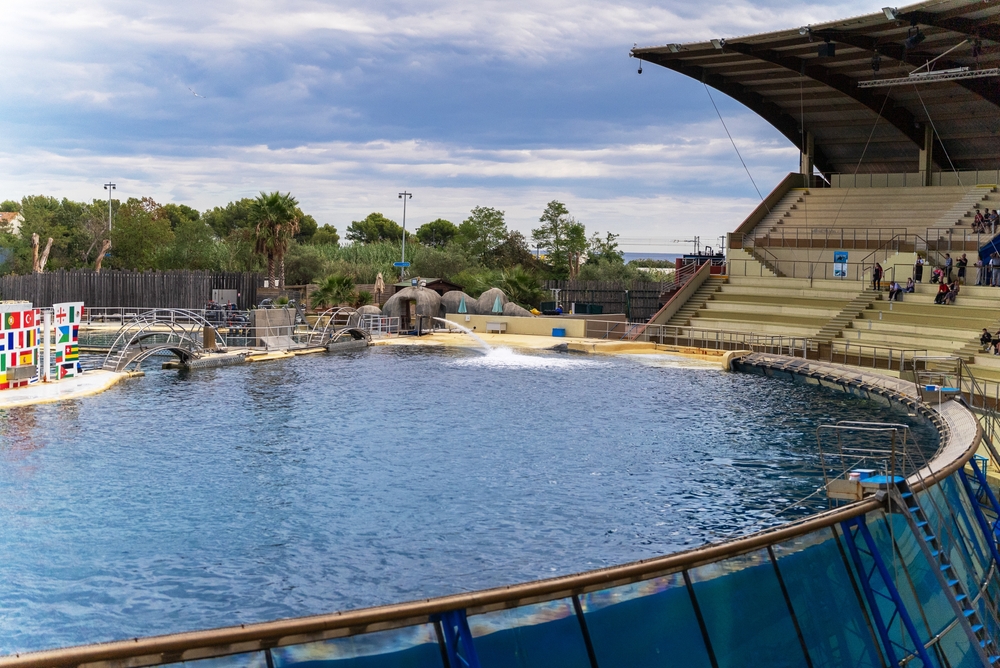
Despite growing protests and viral footage, Marineland Antibes remains largely silent. Park officials claim they continue basic care, yet they offer little transparency. There are no published vet reports, no third-party inspections, and no clear plan for what comes next. Meanwhile, the animals remain in the abandoned marine park, sparking deeper concerns. Critics accuse the park of stalling in hopes the controversy will fade. But with drones flying overhead and activists watching closely, that’s unlikely. The longer Marineland delays, the louder the demands for accountability grow. Clearly, silence won’t save the animals, or the park’s reputation.
What This Says About Captivity
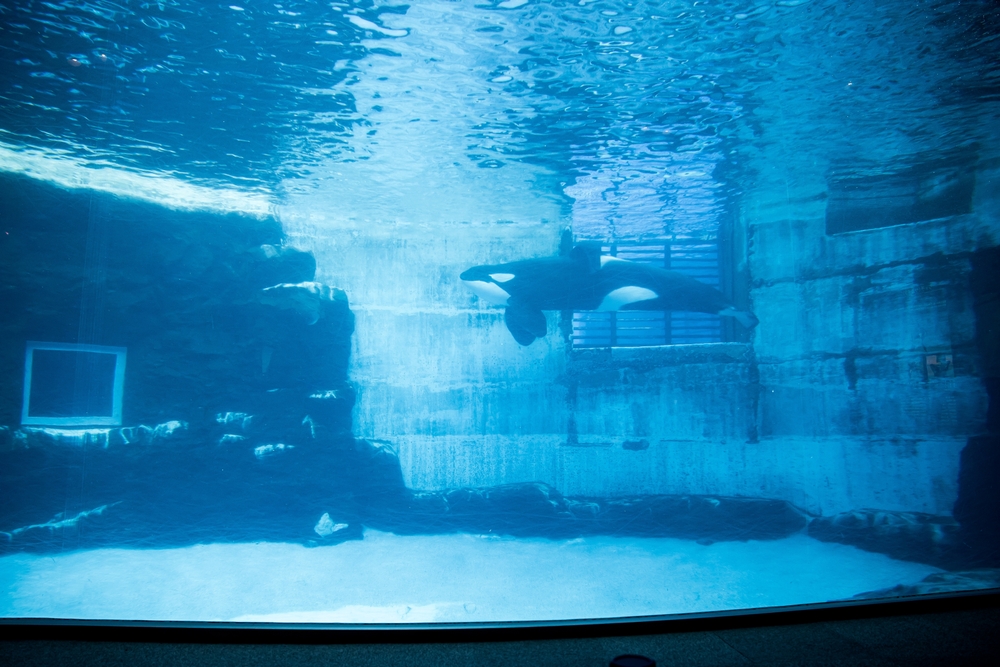
This crisis at Marineland Antibes has sparked a broader debate. If countries ban marine shows, what happens to the animals already in tanks? The orcas and dolphins left in this abandoned marine park reveal a major flaw in the system: reform without responsibility. Laws may end future suffering, but without transition plans, they leave past victims behind. This situation forces lawmakers, animal welfare advocates, and the public to rethink captivity. Moving forward, it’s not enough to say “no more shows”, we need clear, funded paths toward ethical retirement. Otherwise, the cycle of abandonment will keep repeating.
Still Waiting for Rescue
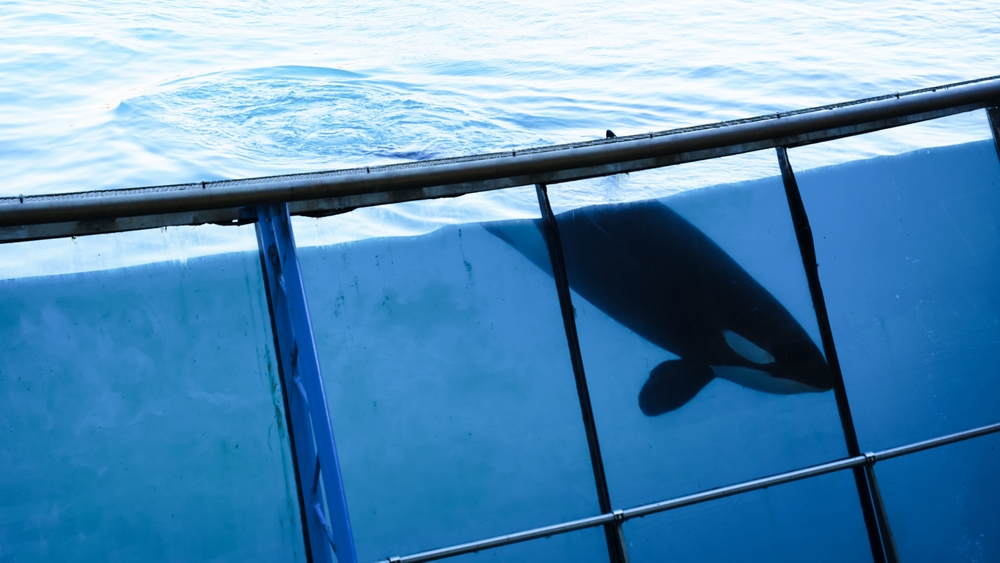
Wikie, Keijo, and the 12 dolphins remain inside Marineland Antibes, swimming in circles at an abandoned marine park the world can’t ignore. For now, they wait. Proposals come and go. Protests grow louder. Yet no one has moved them to safety. Each day that passes, the urgency grows. Their story highlights not just the failures of a single park, but a global system that still struggles to balance entertainment, ethics, and empathy. What happens next will set the tone for marine animal welfare everywhere. Hopefully, it ends with rescue, not regret.
Read More: Crocodile Attacks Tourist Who Climbed Into Its Pen for a Selfie With It
